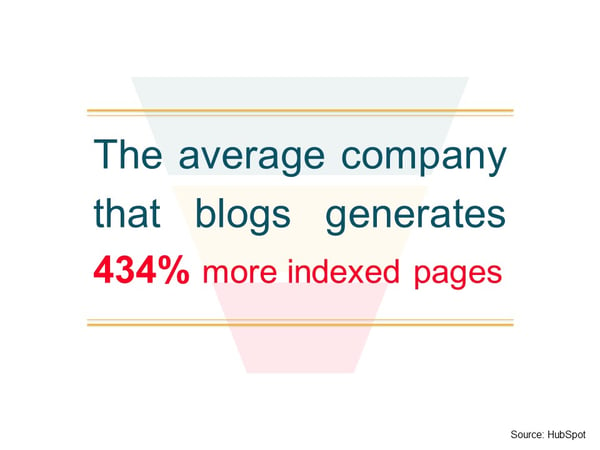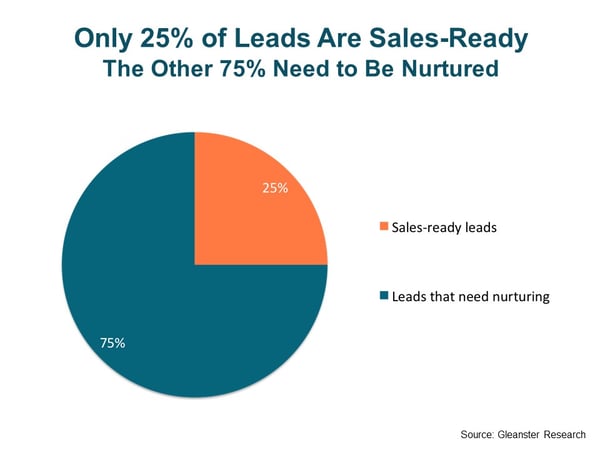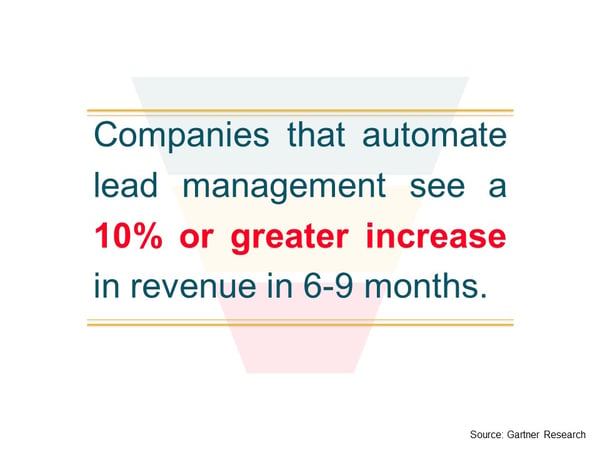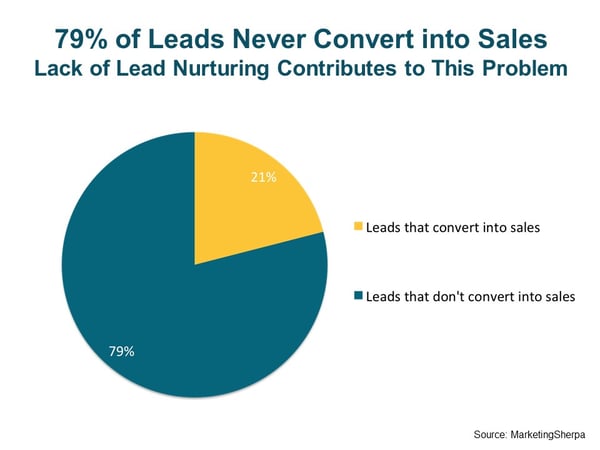Optimising Marketing Operations with AI and Advanced Technologies for CMOs
- Home
- Optimising Marketing Operations with AI and Advanced Technologies for CMOs
The role of Chief Marketing Officers (CMOs) and Marketing Directors in large enterprises has evolved significantly over the years. They must now stay current with industry trends and technologies to remain competitive in their respective markets.
One of the most significant advancements in recent years is the implementation of Artificial Intelligence (AI) and advanced technologies in marketing operations. This article will explore how these technologies can benefit CMOs in large enterprises by enhancing personalization, improving analytics, streamlining marketing processes, aligning marketing efforts with business objectives, and adapting to emerging consumer behaviour trends.
I. Introduction
A. The evolving role of CMOs and Marketing Directors
B. The importance of staying current with industry trends and technologies
C. The impact of AI and advanced technologies on marketing operations
II. AI-Driven Personalization and Analytics
A. Enhancing customer experiences through AI-driven personalization
B. The role of AI in collecting, analyzing, and interpreting marketing data
C. The importance of data-driven marketing strategies for large enterprises
III. Streamlining Marketing Operations with Automation
A. Utilizing AI to automate marketing processes
B. Examples of marketing automation technologies relevant to large enterprises
C. The benefits of marketing automation for improving efficiency and reducing costs
IV. Aligning Marketing Efforts with Business Objectives
A. Setting and tracking marketing KPIs using AI
B. Demonstrating the value of marketing investments to stakeholders
C. Case studies of large enterprises successfully aligning marketing efforts with business objectives using AI
V. Adapting to Emerging Technologies and Consumer Behavior Trends
A. Predicting and adapting to consumer behaviour trends with AI
B. Staying agile and innovative in a rapidly changing marketing landscape
C. The importance of continuous learning and upskilling for marketing professionals

II. AI-driven personalisation and Analytics
A. Enhancing Customer Experiences through AI-Driven Personalization
In today's highly competitive market, delivering personalized customer experiences is essential for large enterprises to stand out and foster long-term relationships with their target audience. AI-driven personalization leverages advanced algorithms and machine learning techniques to analyze vast amounts of customer data and identify patterns, preferences, and behaviours. This enables businesses to create highly targeted marketing campaigns and deliver content that resonates with individual customers, significantly improving engagement and conversion rates.
For example, AI can help CMOs identify high-value customers, understand their preferences, and deliver tailored product recommendations or promotional offers, leading to increased customer satisfaction and loyalty. Furthermore, AI-driven personalization can be applied across various marketing channels, such as email, social media, and websites, ensuring a consistent and personalized experience for customers throughout their journey with the brand.
B. The Role of AI in Collecting, Analyzing, and Interpreting Marketing Data
The ability to collect, analyze, and interpret marketing data is critical for the success of large enterprises. AI plays a significant role in this process by automating the analysis of complex data sets and providing actionable insights to marketing teams. With the help of AI-powered analytics tools, CMOs can quickly identify trends, measure campaign effectiveness, and optimize their marketing strategies for better performance and higher ROI.
AI can also help identify potential customer segments based on demographics, behaviour, and preferences, enabling businesses to target their marketing efforts more effectively. Furthermore, AI-driven predictive analytics can anticipate customer needs, allowing marketing teams to proactively address those needs and stay ahead of the competition.
C. The Importance of Data-Driven Marketing Strategies for Large Enterprises
In today's data-driven world, having a robust marketing strategy that leverages data and analytics is crucial for large enterprises. AI-powered tools enable businesses to make informed decisions based on data, leading to more effective and efficient marketing campaigns.
Data-driven marketing strategies are essential for large enterprises because they:
-
Improve customer targeting: By analyzing customer data, AI can help businesses segment their audience and develop targeted marketing campaigns that resonate with specific customer groups.
-
Increase ROI: By optimizing marketing campaigns based on data-driven insights, businesses can allocate resources more effectively, leading to better results and higher ROI.
-
Enhance customer experiences: Personalization driven by AI allows businesses to tailor marketing messages and content to individual customer preferences, leading to improved engagement and satisfaction.
-
Drive innovation: AI-driven insights can help businesses identify new market opportunities, customer trends, and areas for improvement, fostering innovation and growth.
AI-driven personalization and analytics are critical components of a successful marketing strategy for large enterprises. By enhancing customer experiences, making sense of complex data, and supporting data-driven decision-making, AI can help CMOs in large enterprises optimize their marketing operations and achieve their 
III. Streamlining Marketing Operations with Automation
A. Utilizing AI to Automate Marketing Processes
AI-powered automation can significantly streamline marketing operations for large enterprises by automating various tasks and processes. By leveraging AI, businesses can identify areas where automation can improve efficiency, save time, and reduce costs, allowing marketing teams to focus on strategic initiatives, creative campaigns, and delivering more value to customers.
Automation can be applied to various marketing processes, including lead generation, lead nurturing, customer segmentation, email marketing, social media management, content creation, and data analysis. By implementing AI-powered marketing automation tools, large enterprises can optimize their marketing workflows, enhance customer experiences, and boost overall marketing performance.
B. Examples of Marketing Automation Technologies Relevant to Large Enterprises
Several marketing automation technologies can benefit large enterprises, including:
1. Chatbots: AI-powered chatbots can handle customer queries and provide support 24/7, ensuring a consistent and immediate response, improving customer satisfaction, and freeing up time for marketing teams to focus on more strategic tasks.
2. Email Marketing Platforms: AI-driven email marketing platforms can help businesses automate email campaigns, segment audiences, and personalize content, resulting in higher open rates, click-through rates, and conversions.
3. Social Media Management Tools: AI-enabled social media management tools can streamline content scheduling, audience engagement, and performance analysis, ensuring a consistent brand presence across multiple channels.
4. CRM and Marketing Automation Platforms: Comprehensive CRM and marketing automation platforms, powered by AI, can help businesses automate lead management, campaign tracking, and performance analysis, leading to more efficient marketing processes and better customer experiences.
5. Content Generation Tools: AI-driven content generation tools can assist in creating personalized, relevant, and high-quality content at scale, saving time and resources for marketing teams.
C. The Benefits of Marketing Automation for Improving Efficiency and Reducing Costs
Marketing automation offers various benefits to large enterprises, including:
1. Time and Cost Savings: Automating repetitive tasks can save a significant amount of time for marketing teams, allowing them to focus on more strategic and creative initiatives. Additionally, automation can help reduce costs associated with manual processes, such as hiring additional staff or outsourcing tasks.
2. Enhanced Customer Experiences: Automation enables businesses to deliver consistent and personalized experiences to customers across multiple channels, leading to increased satisfaction and loyalty.
3. Improved Marketing Performance: By automating processes and leveraging AI-driven insights, marketing teams can optimize campaigns, improve targeting, and enhance overall marketing performance.
4. Scalability: Marketing automation allows large enterprises to scale their marketing efforts quickly and efficiently, adapting to changing market conditions and business needs.
5. Better ROI: By streamlining marketing processes and making data-driven decisions, marketing automation can lead to better campaign results, increased revenue, and higher ROI.
Streamlining marketing operations with automation is essential for CMOs in large enterprises. By utilizing AI to automate various marketing processes, implementing relevant marketing automation technologies, and reaping the benefits of improved efficiency and reduced costs, businesses can optimize their marketing strategies and achieve their objectives.

IV. Aligning Marketing Efforts with Business Objectives
A. Setting and Tracking Marketing KPIs using AI
To align marketing efforts with business objectives, large enterprises need to establish and track relevant marketing KPIs (Key Performance Indicators). AI can play a significant role in this process by helping marketing teams identify the most important KPIs, automate data collection, and analyze performance in real-time.
Using AI-driven analytics tools, CMOs can monitor KPIs such as customer acquisition cost, return on ad spend, conversion rates, customer lifetime value, and engagement metrics. By continuously tracking these KPIs, marketing teams can make data-driven decisions, optimize their campaigns, and ensure that marketing efforts contribute to achieving the overall business objectives.
B. Demonstrating the Value of Marketing Investments to Stakeholders
One of the key challenges faced by marketing professionals in large enterprises is justifying marketing investments to senior management and aligning them with business objectives. AI can help marketing teams demonstrate the value of their efforts by providing tangible, data-driven insights that showcase the impact of marketing initiatives on business performance.
By leveraging AI-powered analytics tools, CMOs can generate comprehensive reports that highlight the ROI of marketing campaigns, the effectiveness of different marketing channels, and the contribution of marketing efforts towards revenue generation, customer acquisition, and retention. These insights can be presented to stakeholders, helping them understand the value of marketing investments and their role in driving business growth.
C. Case Studies of Large Enterprises Successfully Aligning Marketing Efforts with Business Objectives using AI
1. A global technology company used AI-powered marketing automation tools to streamline its email marketing campaigns, resulting in a 35% increase in open rates and a 50% increase in click-through rates. By optimizing its email marketing strategy using AI-driven insights, the company was able to align its marketing efforts with its objective of increasing customer engagement and driving revenue growth.
2. A multinational retail corporation implemented AI-powered chatbots to provide personalized product recommendations and support to its customers. This led to a 20% increase in online sales and improved customer satisfaction ratings. By leveraging AI, the company aligned its marketing efforts with its business goal of enhancing customer experiences and driving sales.
3. A large financial services firm used AI-driven analytics tools to optimize its digital marketing campaigns, resulting in a 25% reduction in customer acquisition costs and a 30% increase in conversion rates. By making data-driven decisions and aligning its marketing strategy with its business objective of acquiring new customers cost-effectively, the firm was able to achieve significant success.
Aligning marketing efforts with business objectives is crucial for the success of large enterprises. By setting and tracking marketing KPIs using AI, demonstrating the value of marketing investments to stakeholders, and learning from successful case studies, CMOs can ensure that their marketing strategies are in sync with their organization's goals and drive business growth.

V. Adapting to Emerging Technologies and Consumer Behavior Trends
A. Predicting and Adapting to Consumer Behaviour Trends with AI
In today's rapidly changing marketing landscape, it is crucial for large enterprises to stay ahead of consumer behaviour trends to remain competitive and drive growth. AI can help marketing teams predict and adapt to these trends by analyzing vast amounts of data from various sources, such as social media, search queries, and customer interactions.
By leveraging AI-driven insights, marketing professionals can identify emerging trends, preferences, and pain points in their target audience, allowing them to fine-tune their marketing strategies and create more targeted, personalized campaigns. This proactive approach to understanding and adapting to consumer behaviour trends helps enterprises stay relevant and maintain strong relationships with their customers.
B. Staying Agile and Innovative in a Rapidly Changing Marketing Landscape
The world of marketing is continually evolving, with new technologies, platforms, and techniques emerging all the time. To stay competitive, large enterprises must adopt an agile and innovative mindset, embracing change and constantly seeking new ways to engage and delight their customers.
Staying agile means being open to experimentation and continuously testing new marketing strategies, tools, and channels. It also requires marketing teams to be data-driven, leveraging AI and analytics tools to measure the success of their initiatives and optimize them for better performance. By cultivating a culture of innovation and agility, marketing professionals can ensure that their organizations stay at the forefront of their industries.
C. The Importance of Continuous Learning and Upskilling for Marketing Professionals
In a rapidly changing marketing environment, continuous learning and upskilling are crucial for marketing professionals to stay ahead of the curve and deliver maximum value to their organizations. As new technologies and marketing techniques emerge, it is essential for marketing professionals to invest time and effort in acquiring the necessary skills and knowledge to leverage these developments effectively.
This may involve attending industry conferences, participating in webinars, enrolling in online courses, or engaging in peer-to-peer learning. By staying informed about the latest trends, best practices, and emerging technologies, marketing professionals can ensure that their organizations continue to benefit from cutting-edge marketing strategies and maintain a competitive edge in their respective industries.

Conclusion
The rapidly evolving marketing landscape, driven by emerging technologies and changing consumer behaviour trends, presents both challenges and opportunities for large enterprises. To successfully navigate this landscape and drive business growth, marketing professionals must focus on several key areas.
First, they need to leverage AI-driven personalization and analytics to enhance customer experiences and make data-driven decisions in their marketing strategies. Second, they must streamline marketing operations using automation technologies to improve efficiency, reduce costs, and maximize ROI. Third, it is vital to align marketing efforts with business objectives by setting and tracking KPIs using AI, demonstrating the value of marketing investments to stakeholders, and learning from successful case studies.
Additionally, staying agile and innovative in a rapidly changing environment is essential, requiring marketing professionals to experiment with new strategies, tools, and channels. Finally, continuous learning and upskilling are crucial for marketing professionals to stay ahead of the curve and ensure their organizations benefit from the latest trends, best practices, and technologies.
By focusing on these key areas, marketing professionals can not only address the goals and challenges of their buyer personas but also position their organizations for long-term success in an increasingly competitive and dynamic marketing landscape.

FAQs: Navigating the Evolving Marketing Landscape for Large Enterprises
1. How can AI-driven personalization improve customer experiences?
AI-driven personalization allows marketing professionals to create highly targeted and customized campaigns that resonate with individual customers. By leveraging AI to analyze customer data, marketers can identify preferences, pain points, and behavioural patterns, enabling them to craft personalized messages and offer that drive engagement and loyalty.
2. What role does AI play in collecting, analyzing, and interpreting marketing data?
AI can process and analyze vast amounts of marketing data from various sources at a speed and scale that humans cannot achieve. By utilizing AI-driven analytics tools, marketing professionals can identify trends, patterns, and insights that inform data-driven marketing strategies, optimize campaigns, and improve overall marketing performance.
3. How can marketing automation technologies help improve efficiency and reduce costs?
Marketing automation technologies enable marketing teams to streamline and automate repetitive tasks, such as email marketing, lead nurturing, and social media management. This not only saves time and resources but also allows marketing professionals to focus on more strategic, high-impact activities. Automation tools can also provide valuable insights into campaign performance, helping marketers optimize their efforts for better results.
4. How can marketing professionals align their efforts with business objectives?
Marketing professionals can align their efforts with business objectives by setting and tracking marketing KPIs using AI tools. These tools enable marketers to measure the success of their initiatives, identify areas for improvement, and optimize their strategies for better performance. Demonstrating the value of marketing investments to stakeholders and learning from successful case studies can also help ensure alignment between marketing efforts and business objectives.
5. What steps can marketing professionals take to stay agile and innovative in a rapidly changing marketing landscape?
Staying agile and innovative requires marketing professionals to:
- Be open to experimentation and continuously test new marketing strategies, tools, and channels
- Leverage data-driven insights to optimize marketing initiatives
- Embrace emerging technologies and platforms
- Cultivate a culture of innovation and learning within their teams
6. Why are continuous learning and upskilling important for marketing professionals?
Continuous learning and upskilling are crucial for marketing professionals to stay ahead of the curve in a rapidly evolving marketing environment. By acquiring new skills and knowledge related to emerging trends, best practices, and technologies, marketing professionals can ensure that their organizations benefit from cutting-edge marketing strategies and maintain a competitive edge in their industries.

